If your scalp reacts in response to almost everything, you are not the only one. Some believe that there's no such thing like an anti-dandruff shampoo that can remove flakes without any further discomfort or irritation, that's not true.
The Link Between Sensitive Scalps and Dandruff
A sensitive scalp makes your skin barrier more finicky to products and environmental stress. Add dandruff, and it's even more complicated. Before now, you may not have been paying attention to the kind of anti-dandruff shampoo you use. The regular ones you know or you probably had used in the past can be injurious to your hair's health, as it can make hair brittle and cause inflammation.
Dandruff is a skin condition that causes flaking of the scalp. It is neither contagious nor harmful, but embarrassing and difficult to get rid of. Dandruff is the result of dry pieces of your scalp falling off. Having knowledge of the cause enables you to treat, prevent, and manage it.
Here’s where a sulphate-free product comes into the picture. By removing harsh surfactants, they allow your scalp to repair itself without stopping the treatment of dandruff-causing agents.
What Are Sulphates and Why Avoid Them?
Back in the day (1950s,) sulphates had been widely accepted in the beauty care industry. With science having grown to what it is today, it's a no, especially in the hair industry.
Two common sulphate-based compound ingredients are sodium lauryl sulphate (SLS) and sodium laureth sulphate (SLES). The presence of these two in consumer products are mainly to create lather. It is believed that they help remove grease. However for hair, it is more of a problem rather than a solution. Here's why.
The National Center for Biotechnology Information (NCBI) has linked sulphates with greater transepidermal water loss, meaning they dry out the skin faster. Not good news for anyone with dandruff and sensitivity.
If your scalp is typically sore, tight, or itchy after washing, the offender may be your shampoo. A change to a sulphate-free anti-dandruff shampoo might be just the answer you've been looking for.
Signs That You Need a Sulphate-Free Anti-Dandruff Shampoo
Not sure if you should switch? Here are a few telltale signs:
-
Your scalp gets itchy or inflamed on showering
-
You notice red blotches or tightness after shampoo
-
Your dandruff is worse after medicated shampoo use
-
You colour your hair and experience increased dryness
-
Your waves or curls are dry or rough
GK Hair’s Anti-Dandruff Shampoo gently cleans and helps retain your hair’s natural oils. This is possible because, at GK Hair, Juvexin V2 is that special formula containing keratin—an anti-aging blend that helps restore hair from the inside out to its youthful state.
How to Use Sulphate-Free Shampoo for Maximum Results
Using a gentle shampoo, the process is a little different. Without all that rich lather you might be used to, you need to massage well to get the scalp clean.
Instructions:
-
Wet your hair with warm water
-
Put the shampoo on your scalp—not your tips
-
Massage gently with your fingertips for about 60 seconds
-
Rinse well, and repeat if you have oily hair
-
Finish with a balancing conditioner on mid-lengths to ends
For best results, use your shampoo with GK Hair Moisturizing Conditioner. It works well with the anti-dandruff treatment without drying out roots.
Active Ingredients That Help Sensitive Scalps
Not only do you have to avoid products containing sulphates, you need something better. A product containing active ingredients is the breakthrough for sensitive scalp issues.
-
Zinc Pyrithione – Fights yeast and inhibits flakes
-
Tea Tree Oil – Reduces inflammation and controls oil
-
Salicylic Acid – Gently exfoliates to remove buildup
-
Glycerin – Moisturises and soothes tightness
GK Hair Anti-Dandruff Shampoo features a blend of natural essences alongside mild cleansers. The blend gives your scalp barrier a multi-layered defence—silencing symptoms while nourishing your scalp barrier.
Do you want to know more about how you can take care of your hair all day round? Read: How to Achieve a Good Hair Day Every Day
Scalp Care Tips to Prevent Flare-Ups
Aside from the shampoo, your scalp care routine does count. To prevent irritation, do these:
-
Rinse your hair with cold or lukewarm water
-
Always using heat styling tools can flare things up. If you will use them, then always use a heat protectant like GK Hair's ThermalStyleHer Cream
-
Don't scratch, even when it itches
-
A wide-tooth comb is healthier to use than rough brushes
-
If you don't want hair to be rough by morning, then a satin or silk pillowcase will be better to sleep on
Use your fingers to massage your scalp gently, and do this every week. It promotes blood circulation, flakes, and untangles tightness without rough scratching.
When to See a Specialist
Health experts always recommend that “if symptoms persist, see a doctor.” That hasn’t changed—if you keep having sensitive scalp issues, you should consider seeing a dermatologist. Maybe you have symptoms like seborrheic dermatitis or psoriasis—these symptoms act like dandruff and need special care also.
Avoid trying multiple products simultaneously. Try a basic routine for at least two weeks and notice the response of your scalp.
Final Thoughts
Keeping dandruff at bay is hard enough. Throw in sensitivity, and it’s hell. The good news is that with the right shampoo, you don’t have to worry about convenience and gentleness. GK Hair’s Anti-Dandruff shampoo offers you both.
You can get your hair back to balance with consistency and give your hair the extra care it deserves. And what that looks like is softer roots, smoother skin, and hair that finally seems to be at peace.


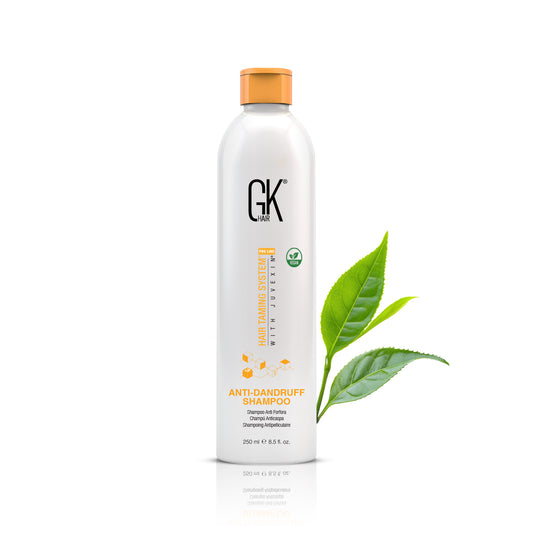
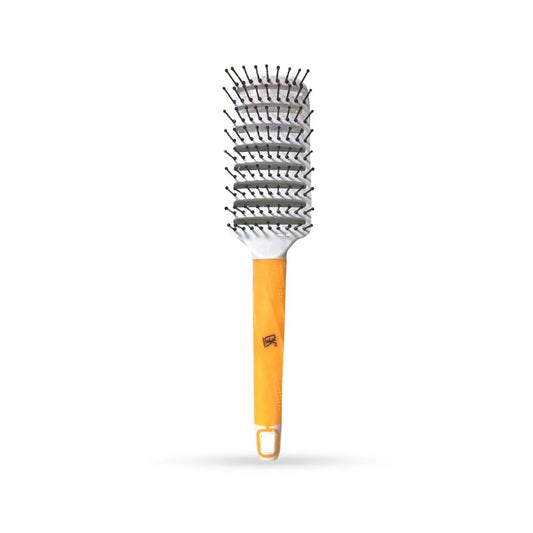
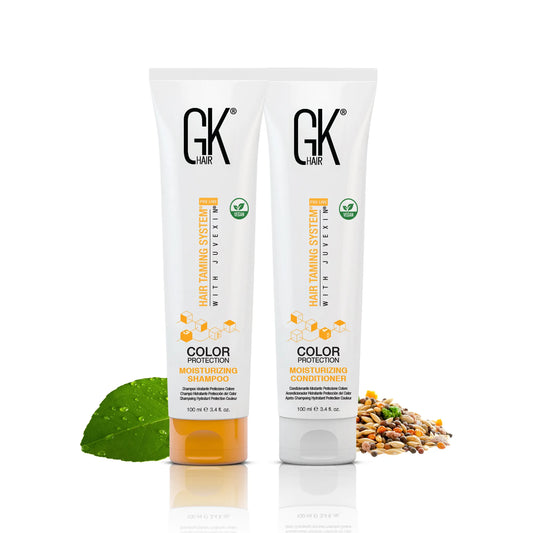

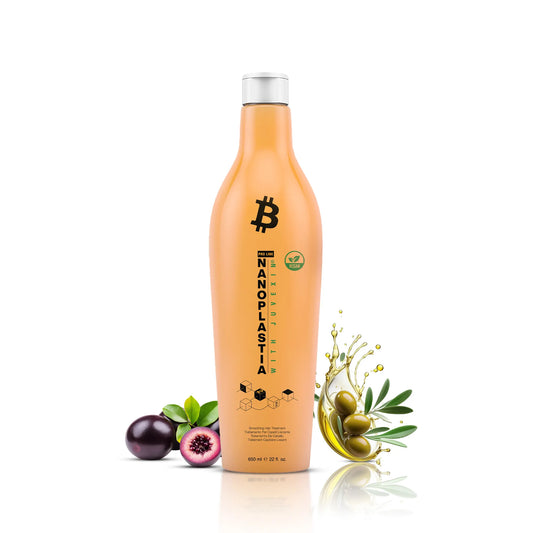
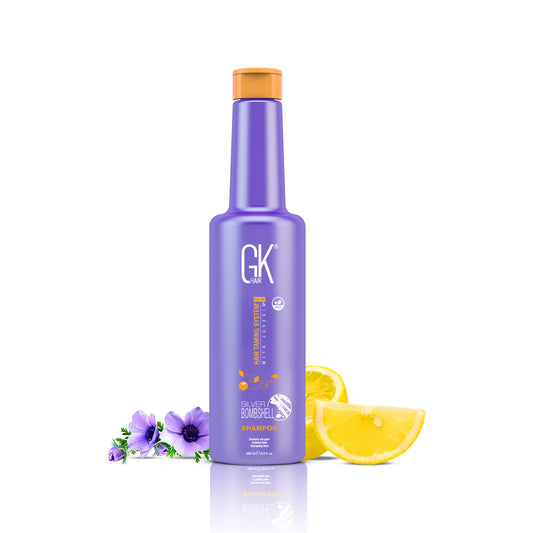
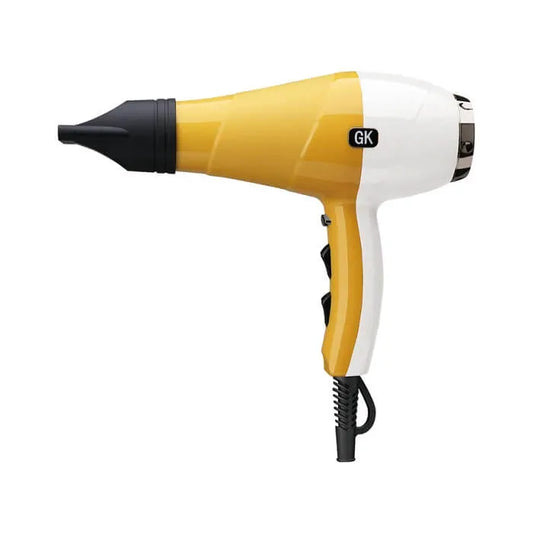
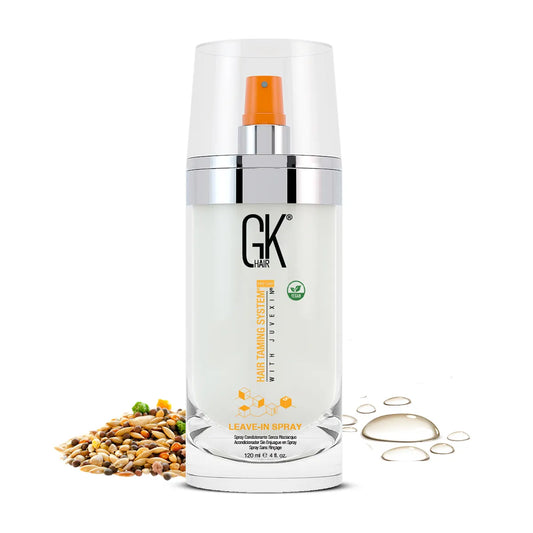







Laissez un commentaire